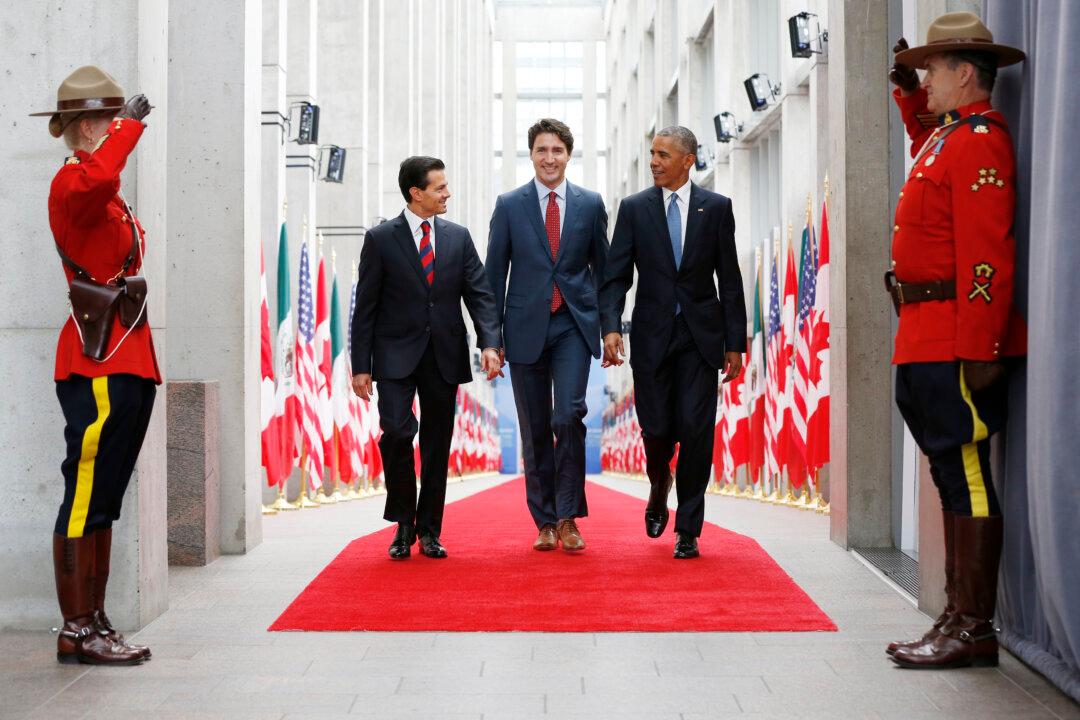OTTAWA—In the face of rising anti-globalization, the leaders of Canada, Mexico, and the United States firmly stated that the best way forward is together.
In the bright and airy Great Hall of the National Gallery of Canada, Prime Minister Justin Trudeau, President Enrique Peña Nieto, and President Barack Obama also expressed their mutual friendship. They were truly the “three amigos.”
Obama, as the senior statesman, always referred to his counterparts by their first names. A camaraderie that went beyond being cordial was on display throughout the day. And Obama was notably verbose in his remarks, reflecting the limited time he has left in office.
“We’re united by common values, democracy, pluralism, and human dignity,” Obama said.
Fresh on the heels of the historic Brexit vote and renewed campaign trail rhetoric from Donald Trump about tearing up trade agreements, the North American Leaders’ Summit (NALS) painted a hopeful landscape for greater integration.
Canada was hosting the “Three Amigos” summit for the first time since 2007.
Debatable Benefits
A June 27 Angus Reid poll showed just 25 percent of Canadians feel the North American Free Trade Agreement (NAFTA) has benefited Canada. The other 75 percent is roughly split between it hurting, not having any effect, or not being sure of its effect on Canada.





